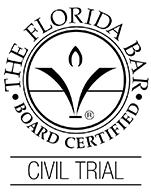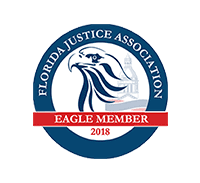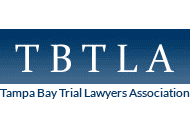In Florida, there is a legal doctrine called the Dangerous Instrumentality Doctrine. Under Florida Statutes, this doctrine states, “the owner who . . . loans a motor vehicle to any permissive user shall be liable for the operation of the vehicle or the act of the operator in connection therewith . . . .”[1] This means that once you, as the owner of a vehicle, allow someone to drive your vehicle, you will be held liable if a permissive user causes a car accident. The most common example of this is when husband and wife put both of their names on the vehicle title. This action makes both liable for a traffic crash rather than just the at-fault driver. Vehicle owners should be aware that if you allow another person to drive your vehicle, you can be on the hook for any damage that results from the use of that vehicle.
There are a few exceptions to the Dangerous Instrumentality Doctrine that will protect you as a vehicle owner. The first is referred to as the “Shop Rule.” This exception states that the owner of a vehicle is not liable for injuries that are caused when the vehicle is left at a repair shop, as long as the owner does not exercise control over the injury causing operation of the vehicle during the servicing.[2] This means that as long as the owner is not the one that causes the accident, or is not the one exercising control over the vehicle when the vehicle is at a repair shop, the owner should not have any liability.
The second exception applies to rental and leasing companies. The law exempting leases states, the owner of a motor vehicle who leases the vehicle shall not be vicariously liable for harm that results from the use, operation, or possession of the vehicle during the lease.[3] This exception is to protect leasing companies who continue to hold the title of a vehicle when a person leases a vehicle. This exception may vary depending on the length of the lease.
The third exception involves the sale of a motor vehicle. Legal title is the most common basis for determining ownership of a vehicle.[4] The problem arises when a person buys a vehicle and is then involved in an accident before the transfer of title occurs. Here, the Court has said that “mere naked title” is able to demonstrate the absence of beneficial ownership of the vehicle.[5] This means that the person with “naked title,” or the one holding the title to ensure payment on a vehicle that was recently sold, no longer has a property interest in the vehicle. Without a property interest in the vehicle, there is no liability.
The fourth exception involves the theft of a vehicle. The Supreme Court has stated that “conversion or theft will relieve an owner of responsibility for its use or misuse.”[6] This is because the owner of the vehicle did not give permission for the vehicle to be used.[7] As such, the owner should not be responsible for any damage or injury that occurs while a vehicle is in possession of the thief.
While there are some exceptions to the Dangerous Instrumentality Doctrine, in most situations the owner of the vehicle can and will be liable for damages that occur from the permitted use of a vehicle. You should always consider the potential liability when loaning out your vehicle, or when you are buying a vehicle for your children.
Author:
[1] Fl. Stat. 324.021(9)(b)(3) (2019).
[2] Cofty v. Smith, 686 So.2d 728, 730 (Fla. 1st DCA 1997).
[3] Rosado v. Daimlerchrysler Fin. Servs. Trust, 112 So.3d 1165, 1165 (Fla. 2013).
[4] Aurbach v. Gallina, 753 So.2d 60, 63 (Fla. 2000).
[5] Id.
[6] Susco Car Rental System v. Leonard, 112 So.2d 832, 835-836 (Fla. 1959).
[7] Fl. Stat. 324.021(9)(b)(3).


![cftla-member[2]](https://www.1800askdave.com/wp-content/uploads/2022/03/cftla-member2.png)
![cftla-member[3]](https://www.1800askdave.com/wp-content/uploads/2022/03/cftla-member3.png)










